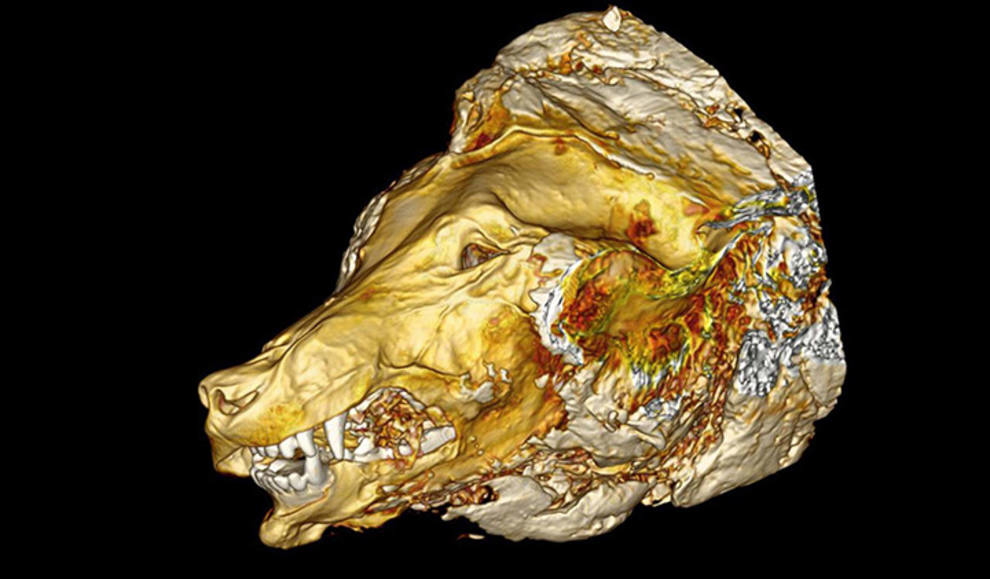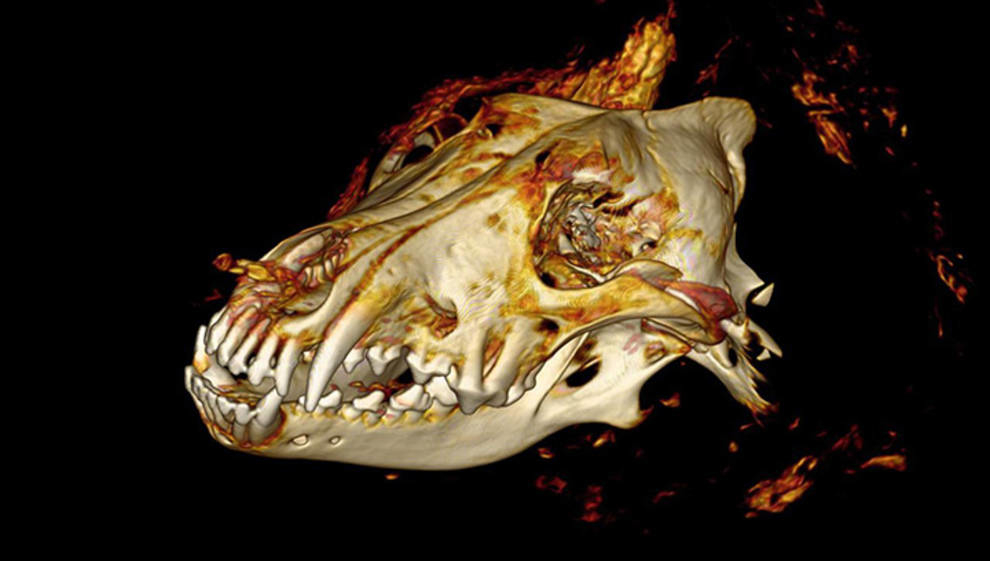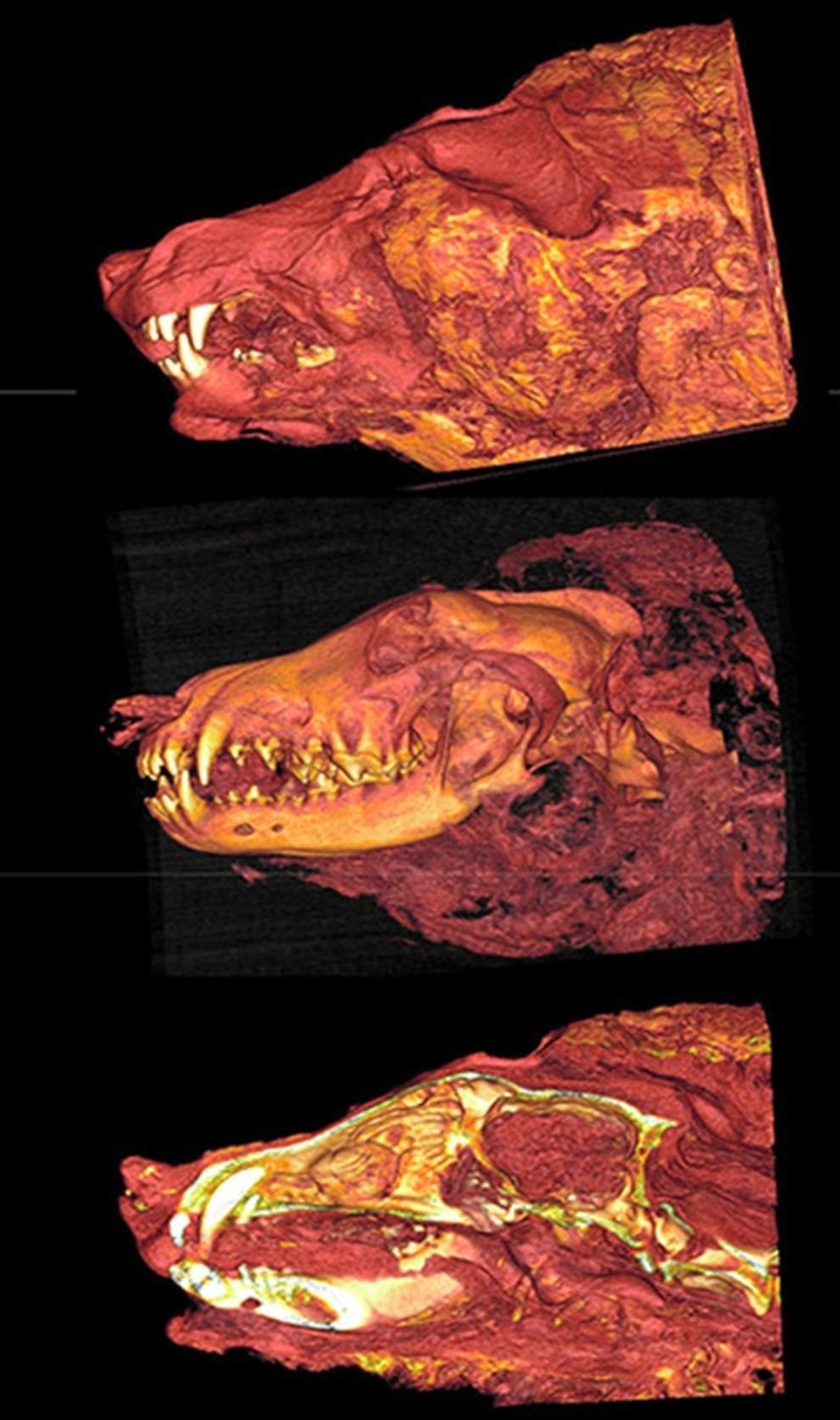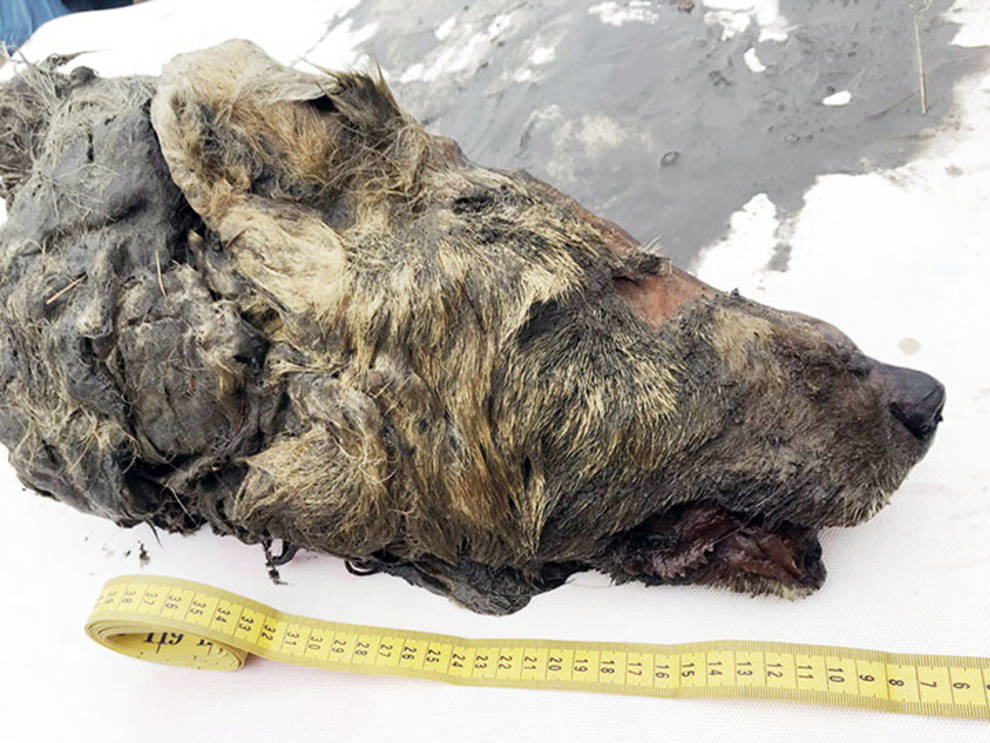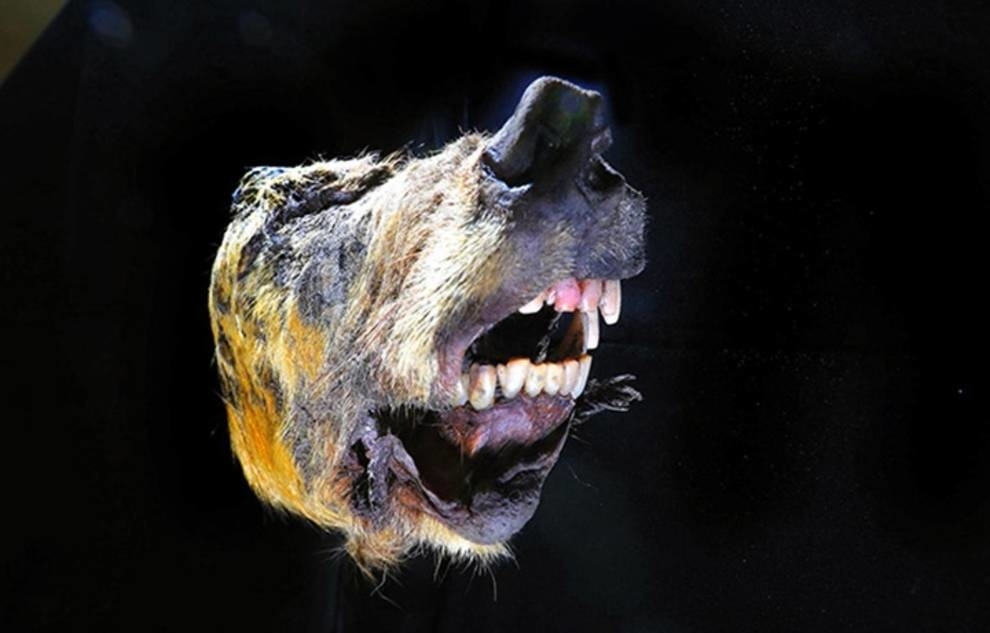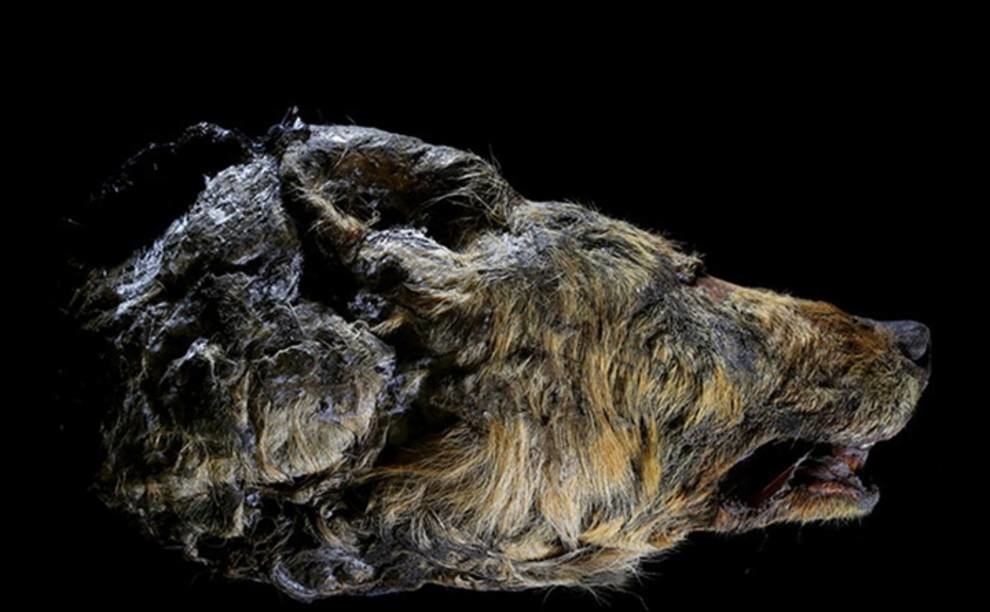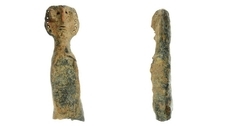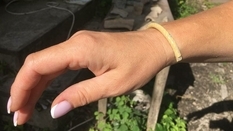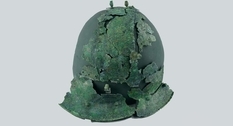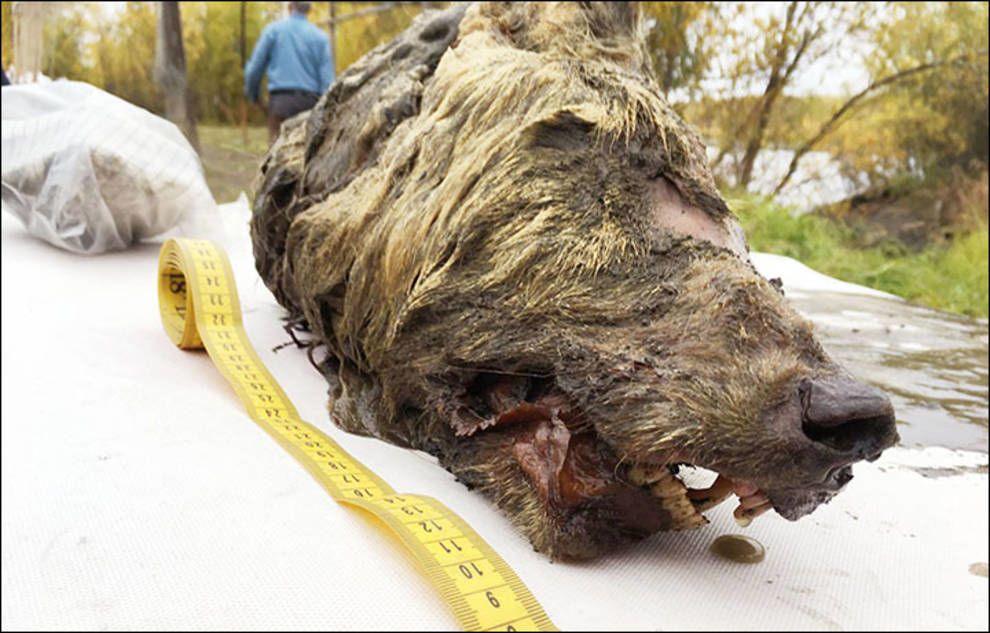
The permafrost head: the remains of a wolf that have lain intact for 40,000 years
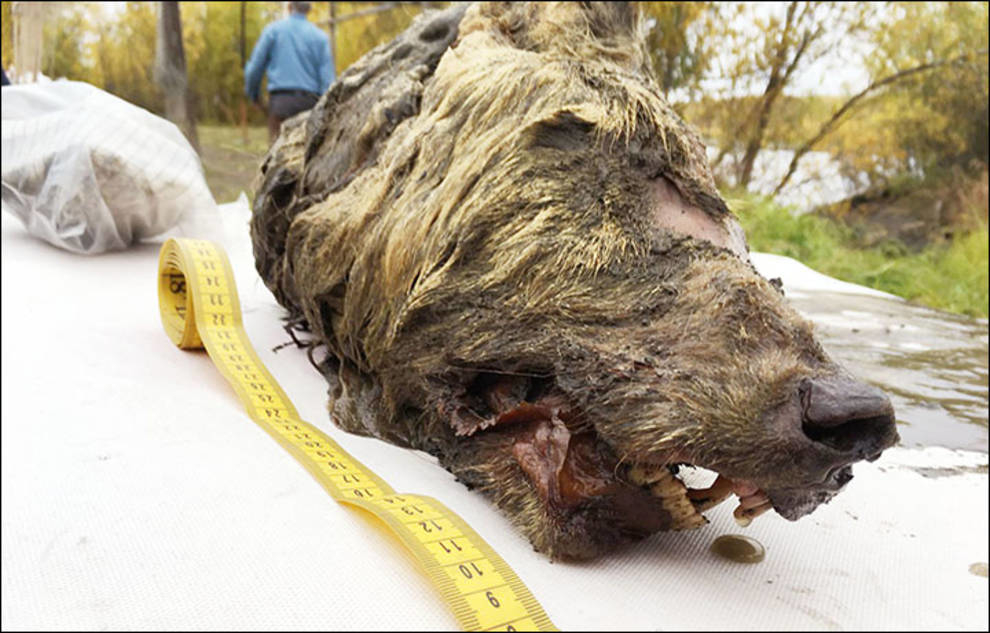
Photo © zolord.ru
In the summer of 2018, on a precipice of the Tirekhtyakh River in the Abyysky District of Yakutia, a hunter Pavel Efimov found the head of a wolf. When he handed over his discovery to scientists, they established that the head belongs to an extinct ancient wolf who lived more than 40,000 years ago.
Primary dating was carried out by researchers from Japan who worked in the Republic of Sakha. This species of wolf lived approximately in the upper (late) Paleolithic (42 000 - 12 000 years ago). The period is characterized as the most severe phase of the last Wurm glaciation, when modern people settled throughout the Earth.
“We took out samples and removed head parameters. Processing was in Japan, tests - in Sweden. Our foreign colleagues set the age to be about 40,000 years old. This is a unique discovery of the first in the history of the remains of an adult Pleistocene wolf with preserved tissue. We will compare it with modern wolves in order to understand how the species evolved and reconstruct its appearance,” said Albert Protopopov from the Academy of Sciences of the Republic of Sakha.
The head, in comparison with modern wolves, is very large, the wolf has a completely preserved brain, all the canines are in excellent state of preservation. The head in permafrost is so well preserved that it looks like a wolf died a few years ago. The wool is also well preserved - it is thick, reddish in wolf, very similar to mammoth wool.
Scientists believe that the animal was only 2 to 4 years old when it died. The body of the wolf was not found, perhaps the head was separated from the body by ancient people and thrown out. This is evidenced by the characteristic marks on the bones. The ancient people used the meat of the wolf as food.

